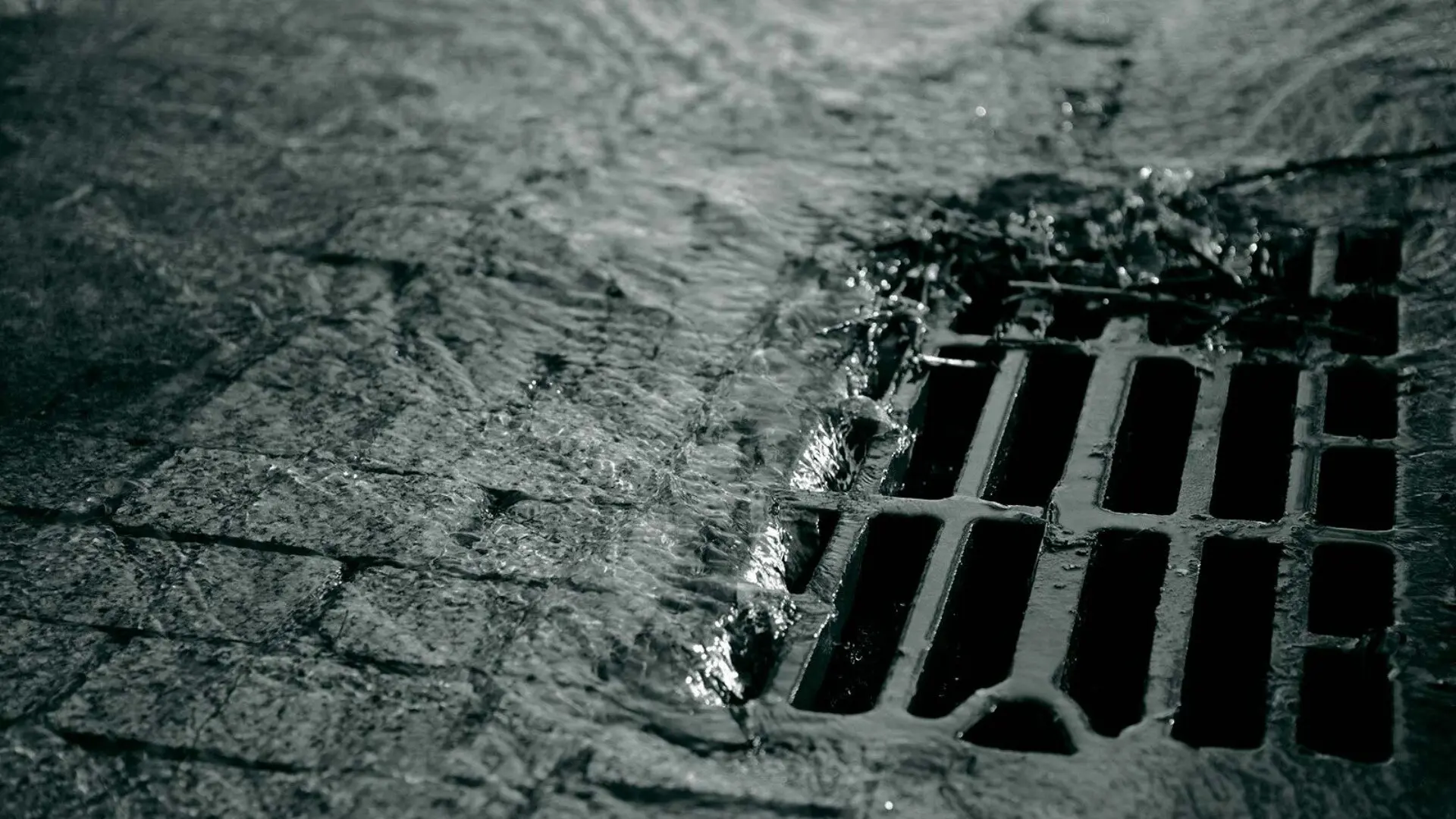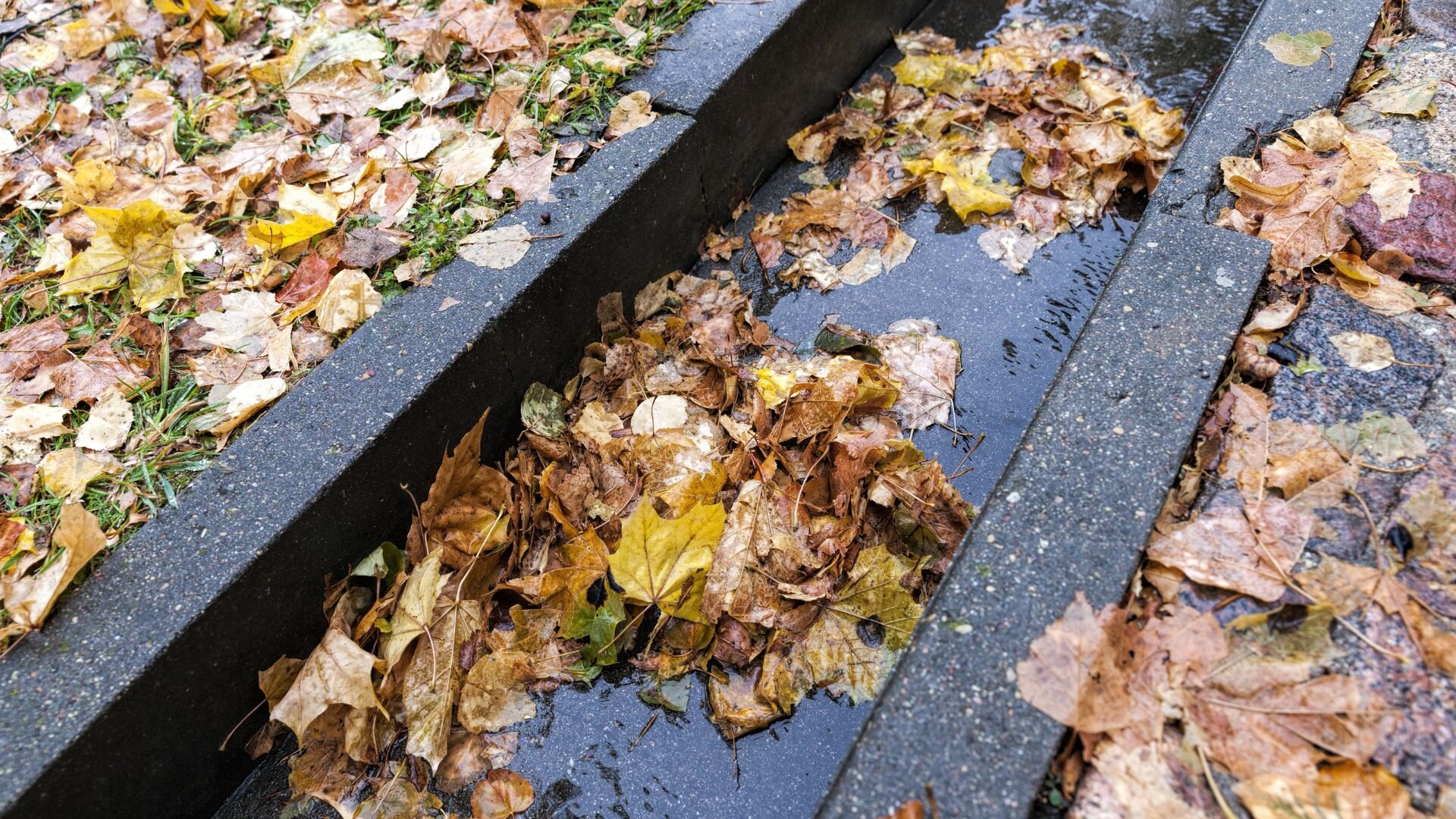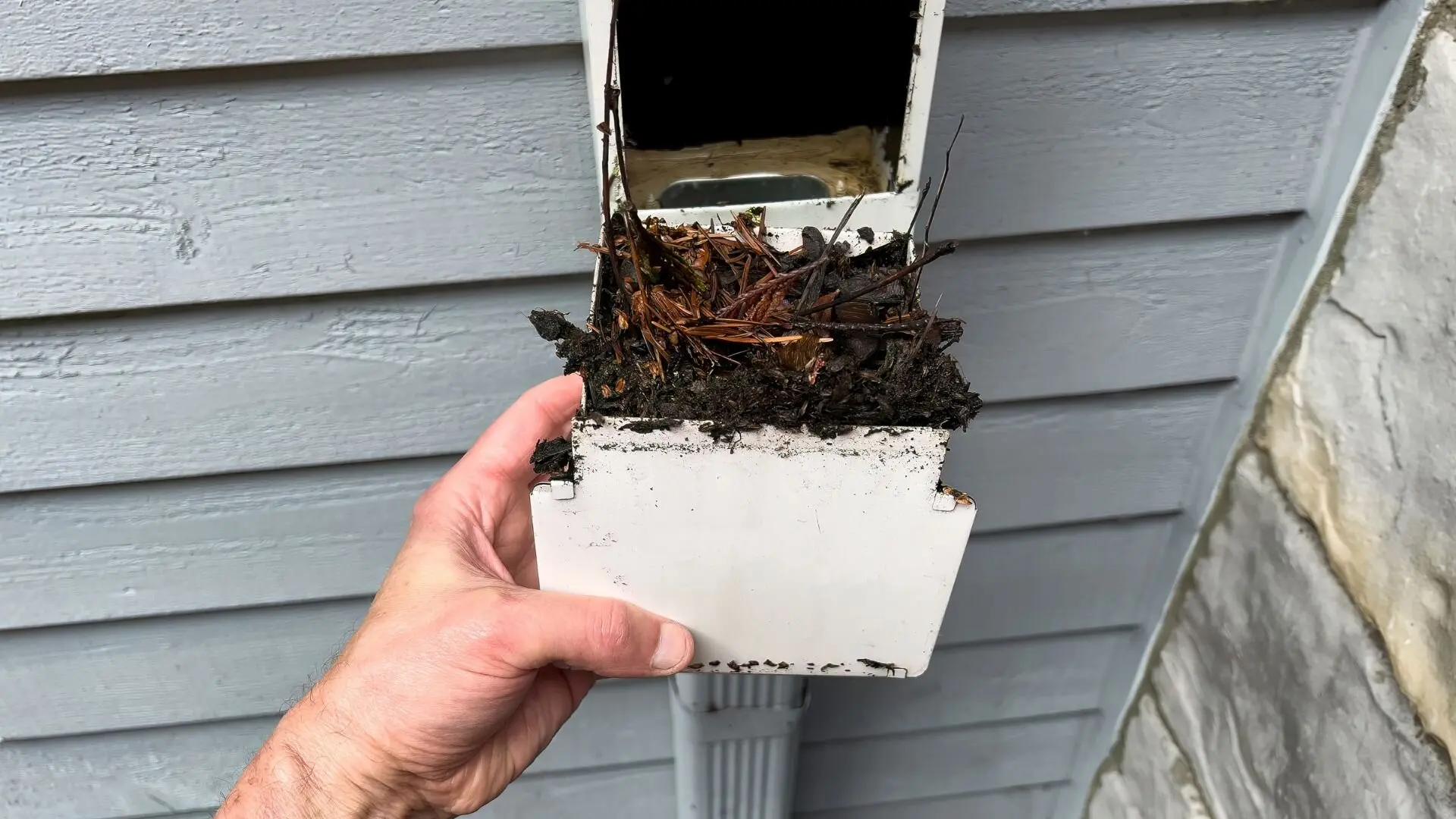
Seeing floodwaters rise can be alarming, but there’s good news. By maintaining your stormwater system, you can greatly lower the risk. Blocked drains and gutters often pose the biggest threats to effective water drainage during those downpour days.
Yet, spending just a few moments clearing debris can keep water flowing smoothly. In this post, we’ll look at ways to check and maintain your roof runoff and ground drainage. From seasonal gutter cleanings to routine drain inspections, discover handy tips that could help prevent flooding and bring peace of mind.
How to Prevent Stormwater Blockages and Flooding
Inspect your Gutters and Downpipes
Before the rainy season kicks in, have a good look at your roof’s gutters and downpipes. Check for any damage or blockages, and see if all areas are draining properly.
Clear out debris like leaves and branches that might be clogging things up. After storms, give those newly fallen leaves a flush. Ensure your downpipes are sending water at least a metre away from your home’s foundation.
Cleaning doesn’t take much time but can really help stave off flooding problems. Periodic gutter checks are a sensible habit.
Clear Surface Debris and Litter
Besides your gutters, clear away debris from outdoor surfaces like roofs and driveways before it rains. Make sure to sweep fallen leaves, twigs, and litter so they don’t end up clogging gutters or storm drains.
Take a peek around drains and culverts for any build-up and clear it out. A quick ten-minute sweep around your property can help prevent blocked stormwater drains. The less material that gets in, the lower the risk of clogs. It’s a small effort for valuable protection.
Keep Drain Grates Unobstructed
To handle heavy rainfalls, keep your stormwater drain grates clear. Look for weeds, leaves, or trash that might clog the openings.
Grab a rake or broom to clear away any obstructions and ensure water can flow unobstructed into the drain. If grates frequently get covered, you might want to trim back nearby plants. Clearing grates makes a big difference in handling storms effectively.

Maintain Natural Flow Paths
It’s essential to allow natural stormwater flow paths to remain open on your property. Trim back any overgrown trees or plants blocking low-lying areas where water drains. Ensure grades and slopes direct rainfall runoff adequately towards street gutters or culverts.
Obstruct or alter flow patterns only after consulting local flood planning requirements. A well-maintained stormwater drainage layout helps rainfall exit smoothly instead of pooling in unwanted areas.
Deep Clean your Drains
For major drainage systems, periodically do a deeper clean. Annually inspect pits and culverts, raking out built-up sediment, leaves and debris not flushed through by rain alone.
Consider using non-chemical drain cleaners or a plumber’s snake to clear the clog in the blocked stormwater drain pipes. Professional rodding or jetting services can more fully access lines. Regular deep cleans reduce long-term clogging risks. Catching build-up before it complicates matters means smaller drainage jobs.
Create an Ongoing Maintenance Plan
Create a yearly stormwater maintenance calendar to keep track of inspections and cleaning. Plan biannual checks for gutters, grates, and perimeters. Be mindful of when leaves drop and when storms are likely.
Organise major drain clean-ups before the rainy season hits. Get the family involved with the lighter tasks and keep everyone accountable. Maintain a log of any repairs that crop up.
Think about planting suitable groundcovers to cut down on debris. A bit of planning can keep your property running smoothly and help prevent blockages throughout the year.
Flood Proof for Severe Weather
Take extra precautions during extreme rainfall events, such as hurricanes or prolonged downpours. Preemptively sandbag low entry points if flooding is predicted.
Move valuables upstairs or to high ground as a precaution. Check that sump pumps are operational and backup power is available. Consider flood barriers, removable grates or raised utility upgrades for very high-risk areas on your property.
While maintenance reduces everyday risks, severe storms may require temporary safeguards. Being prepared can minimise damage if floodwaters exceed your drainage capacity.

When to Get Professional Help
Developing an ongoing maintenance plan can help you stay on top of stormwater drainage system upkeep throughout the year. Schedule biannual inspections of gutters, downpipes, drain stormwater grates, and the perimeter of your property to remove debris and clear obstructions before each wet season.
Note when leaves are likely to fall so you can monitor gutters, gutter guards, and drains more closely. Plan to deep clean major drains and drainage structures like culverts annually before peak rainfall.
Encourage family members to share lighter cleaning duties and hold everyone accountable. Maintain a log of any needed repairs. For severe storms, temporary flood barriers or sandbags preemptively placed at low spots can offer added protection when drainage systems face overflow risks.
Recognise when it’s time to call in professional drain cleaners. Look out for stubborn blockages, standing water that refuses to drain, silt or debris showing up in sewer pipes, tree root invasions, or recurring drainage woes that resist DIY fixes. A well-organised maintenance schedule ensures you’re on top of stormwater system challenges throughout the year.
FAQs
How often should gutters be cleaned?
Aim to inspect gutters and downpipes at least twice a year or more frequently if tree roots are heavily shed.
Is leaf litter a flooding risk?
Even a thin layer of leaves can block grates and drains, reducing stormwater intake and overflow capacity.
Should I clean out street drains, too?
No, leave street drains to your local council. Focus on maintaining your own roof and property drainage systems.
What’s the best way to clear a major blockage?
Try a plumber’s snake before considering jetting or rodding by a professional drain cleaner.
How deep should drainage pits be cleaned?
Clean out any accessible silt or debris from the top 1-2 metres. Deeper cleaning may require special equipment.
What natural materials are safe for landscaping near drains?
Gravel, mulch, selected grass and low groundcovers won’t interfere with flow like high plants might.
Should I worry about indoor drain clogs, too?
Yes, maintain bathroom, kitchen and laundry drains by regularly removing hair and other build-up.

Making Prevention a Priority
Implementing regular stormwater drain maintenance is a straightforward way to help prevent blockages and flooding around your property. Small efforts spread throughout the year can go a long way in keeping water flowing smoothly.
As we’ve explored, this involves periodically checking gutters, clearing blocked drains and other debris, inspecting drains, and developing an ongoing maintenance routine. Taking a proactive approach to your drainage systems pays dividends in helping protect your home and valuables from stormwater back-ups or overflows.
Don’t hesitate to contact Fixed Today for professional drain cleaning or flood remediation services. As trusted local experts, we can assess your drainage systems, perform repairs or deep cleaning, and provide recommendations tailored to your property’s unique needs.
It’s essential to stay on top of preventative maintenance, but don’t battle blockages alone—we’re here to help keep your stormwater drains flowing freely all year round. Call us today to discuss how we can assist in getting your drains and drainage paths back to optimal functioning.














